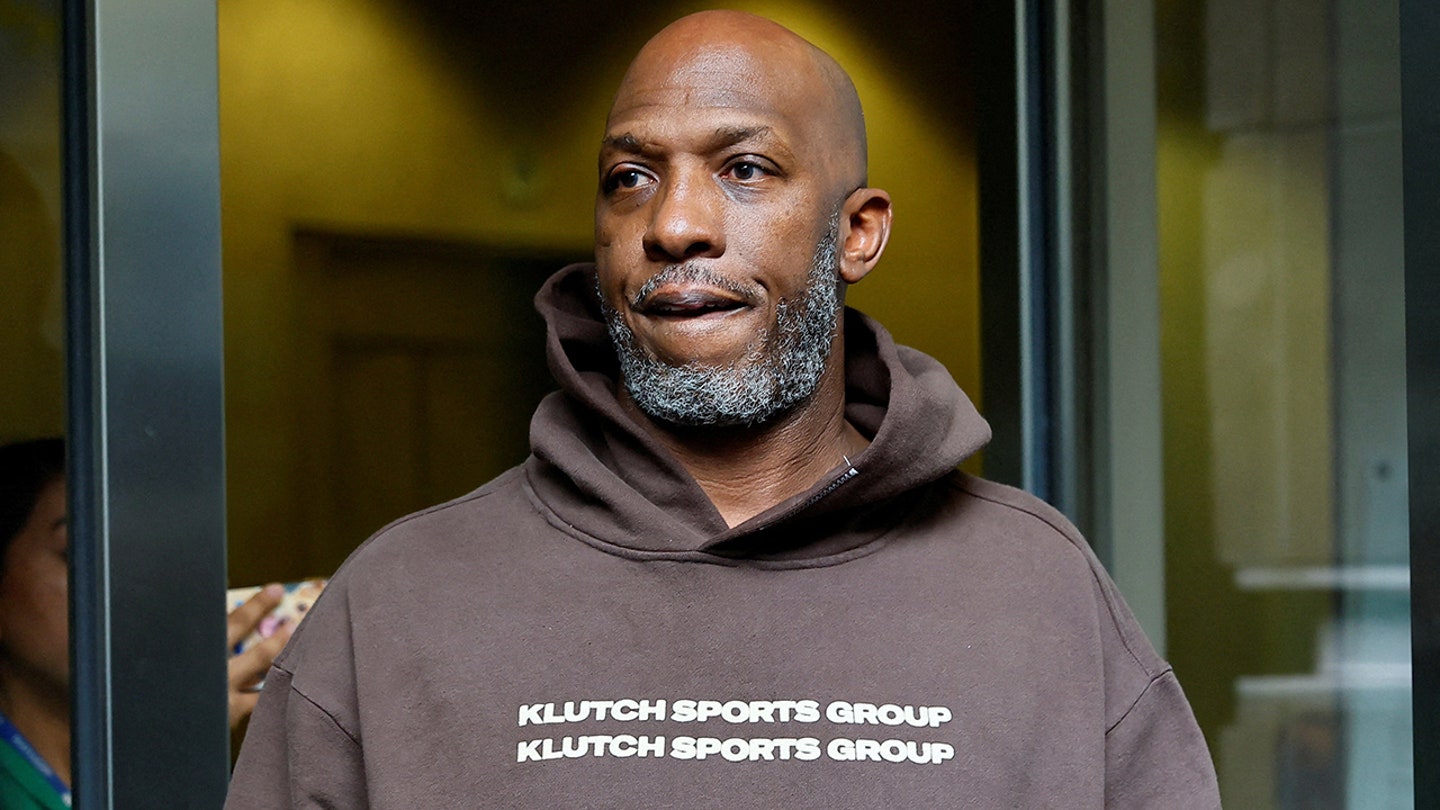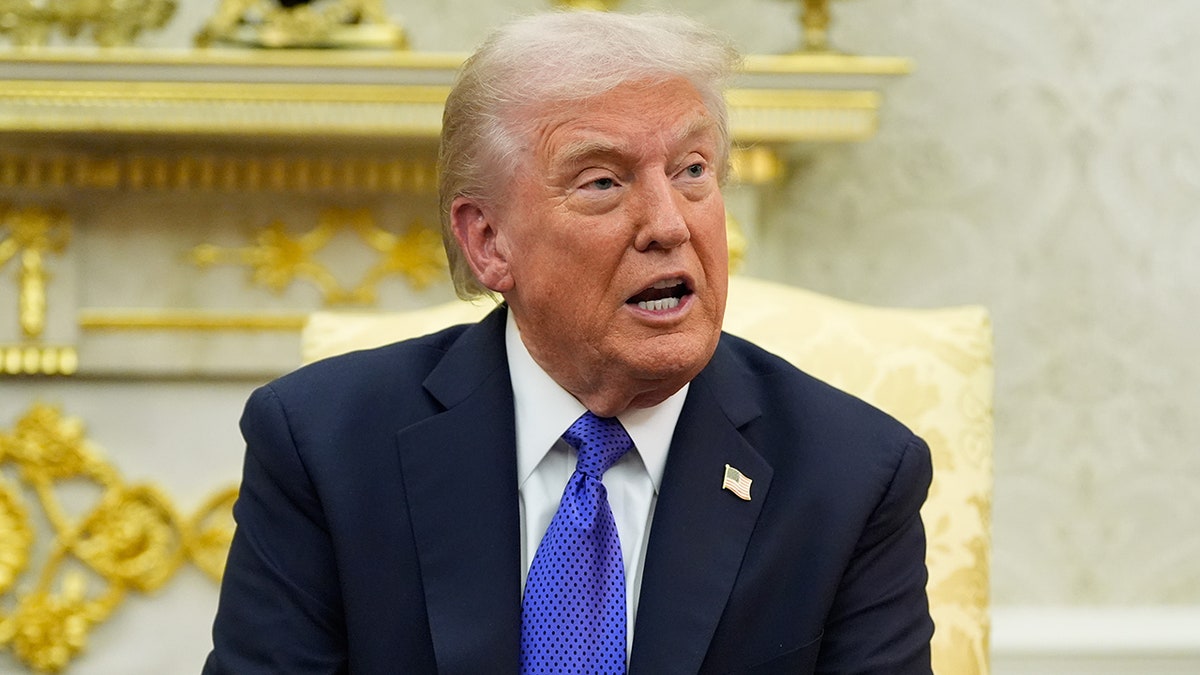
Ex-NFL referee blasts SEC after longtime official Ken Williamson is reportedly permanently benched
Entities mentioned:
- Ken Williamson: Professional pride, Duty, Recognition
- Southeastern Conference (SEC): Competitive spirit, Control, Integrity
- Terry McAulay: Righteousness, Indignation, Professional pride
Article Assessment:
Credibility Score: 70/100
Bias Rating: 50/100 (Center)
Sentiment Score: 30/100
Authoritarianism Risk: 40/100 (Generally Democratic)
Bias Analysis:
The article presents multiple viewpoints, including the SEC's actions and criticism from a former NFL referee. It provides context and background, maintaining a relatively neutral stance on the issue.
Key metric: NCAA Football Officiating Quality
Let me tell you something - this story is a GAME-CHANGER in the world of college football officiating! The SEC has just made a FOURTH QUARTER MOVE by benching veteran referee Ken Williamson after a string of controversial calls. This is like pulling your star quarterback in the final minutes of a championship game! Williamson, a seasoned player with decades on the field, has been hit with a red card that could end his career. The SEC is playing HARDBALL, folks, showing they're not afraid to make tough calls when the integrity of the game is on the line. But hold on to your helmets - former NFL ref Terry McAulay is firing back like a linebacker blitzing the quarterback! He's calling this move INSANE and throwing a challenge flag on the SEC's decision. This is turning into a real SLUGFEST between officiating veterans and conference brass. I'm telling you right now, this could change the whole playbook for how we handle referee performance in college sports!

Charles Barkley, Kenny Smith clash over FBI gambling probe allegedly involving NBA figures: 'That's stupidity'
Entities mentioned:
- Charles Barkley: Righteousness, Moral outrage, Professional pride
- Kenny Smith: Duty, Obligation, Wariness
- NBA: Self-preservation, Integrity, Control
- FBI: Justice, Control, Duty
- Chauncey Billups: Greed, Self-preservation, Fear
- Terry Rozier: Greed, Self-preservation, Fear
Article Assessment:
Credibility Score: 75/100
Bias Rating: 50/100 (Center)
Sentiment Score: 25/100
Authoritarianism Risk: 30/100 (Generally Democratic)
Bias Analysis:
The article presents multiple viewpoints from different NBA analysts, allowing for a balanced discussion. It also includes factual information about the FBI investigation and charges, maintaining a neutral stance.
Key metric: NBA League Integrity
Let me tell you something - this story is a GAME-CHANGER for the NBA! We're talking about a FULL-COURT PRESS by the FBI that's left the league scrambling on defense. Billups and Rozier, once star players, are now facing their toughest opponents yet - federal charges! This is like watching a championship team implode from the inside. The NBA thought they had a slam dunk with their gambling policies, but now they're fumbling the ball big time. Barkley and Smith are going at it like it's the fourth quarter of Game 7, folks! Barkley's playing offense, calling out 'stupidity', while Smith is on defense, talking about addiction. But let me tell you, this isn't just a foul - this could be a career-ending move for some of these players. The league's integrity is on the line, and they need to step up to the plate and knock this one out of the park if they want to maintain their championship mentality. This is RIDICULOUS, and I'm telling you right now, the NBA needs to tighten up their defense or they'll be watching their credibility go up in smoke faster than a buzzer-beater!

ESPN star Stephen A Smith makes Trump warning after FBI's illegal gambling probe nets NBA figures
Entities mentioned:
- Stephen A. Smith: Competitive spirit, Professional pride, Wariness
- Donald Trump: Power, Revenge, Control
- FBI: Justice, Duty, Control
- NBA: Self-preservation, Professional pride, Integrity
Article Assessment:
Credibility Score: 65/100
Bias Rating: 40/100 (Lean Left)
Sentiment Score: 25/100
Authoritarianism Risk: 55/100 (Mixed/Neutral)
Bias Analysis:
The article leans slightly left due to the prominence given to Stephen A. Smith's speculative comments about Trump. While it reports on factual arrests, it allows Smith's partisan warnings to dominate the narrative.
Key metric: Public Trust in Sports Integrity
Let me tell you something - this story is ABSOLUTELY EXPLOSIVE! We're seeing a full-court press by the FBI, folks, and they're not pulling any punches! The league of law enforcement is bringing the heat in the fourth quarter, and some big-name ballers are getting caught in the crossfire. But hold onto your jerseys, because Stephen A. is calling an audible here - he's warning that Trump is warming up on the sidelines, ready to sub in and dominate the game! This could be a game-changer for the whole sports world, with the potential for a championship-level showdown between Trump and the leagues. I'm telling you right now, we might be heading into sudden death overtime, and NOBODY knows who's going to come out on top!

Oregon Sen Ron Wyden reacts to FBI probe involving Trail Blazers coach Chauncey Billups: 'Very sad day'
Entities mentioned:
- Ron Wyden: Loyalty, Moral outrage, Duty
- Chauncey Billups: Greed, Recognition, Self-preservation
- FBI: Justice, Duty, Professional pride
- NBA: Professional pride, Integrity, Control
- Portland Trail Blazers: Competitive spirit, Loyalty, Self-preservation
Article Assessment:
Credibility Score: 75/100
Bias Rating: 50/100 (Center)
Sentiment Score: 25/100
Authoritarianism Risk: 20/100 (Strongly Democratic)
Bias Analysis:
The article presents multiple perspectives and quotes from various parties involved. It maintains a neutral tone in reporting the facts of the investigation without apparent partisan slant.
Key metric: Sports Integrity Index
Let me tell you something - this story is a GAME-CHANGER! The NBA's integrity is taking a full-court press from these allegations. We're seeing a major league fumble here, folks! Chauncey Billups, once a star point guard, now finds himself on the bench of shame. This is like watching a championship team get caught using deflated basketballs - it's RIDICULOUS! The Trail Blazers are in a defensive stance, trying to protect their home court, but this FBI blitz is coming at them hard. Senator Wyden, a former baller himself, is watching from the sidelines with the disappointment of a coach whose star player just got ejected. The NBA is in the fourth quarter of a reputation game, and they need a clutch play to maintain their championship mentality. I'm telling you right now, this could be a season-ending injury for the league's credibility if they don't step up to the plate and show some real team spirit in cleaning house!

Chauncey Billups mum as he leaves courthouse following arrest in widespread FBI probe
Entities mentioned:
- Terry Rozier: Self-preservation, Justice, Pride
- James Trusty: Professional pride, Justice, Indignation
- FBI: Justice, Control, Recognition
- NBA: Professional pride, Integrity, Control
Article Assessment:
Credibility Score: 65/100
Bias Rating: 55/100 (Center)
Sentiment Score: 30/100
Authoritarianism Risk: 45/100 (Mixed/Neutral)
Bias Analysis:
The article presents multiple perspectives, including statements from Rozier's lawyer and the NBA. While it leans slightly towards Rozier's defense, it also includes details about the investigation and allegations.
Key metric: NBA Player Integrity
Ladies and gentlemen, we've got a FULL COURT PRESS situation here! The FBI is playing hardball, coming out of nowhere with a BLITZ on Terry Rozier and other sports figures. But let me tell you something - Rozier's legal team is showing some SERIOUS DEFENSIVE SKILLS, calling out the Feds for what they see as an unnecessary SLAM DUNK attempt. This is turning into a real GRUDGE MATCH, folks! The NBA had already cleared Rozier, thinking they'd made the GAME-WINNING SHOT, but now the Feds are forcing OVERTIME. It's looking like we're headed for a LEGAL SHOWDOWN that'll test everyone's ENDURANCE and TEAMWORK. Rozier claims he's not afraid of a fight, so strap in - we might be in for a SEVEN-GAME SERIES in the courtroom!

Feds reveal mafia-linked gambling probe that led to arrests of Hall of Famer Chauncey Billups and NBA star Terry Rozier
Entities mentioned:
- Chauncey Billups: Greed, Recognition, Self-preservation
- Terry Rozier: Greed, Self-preservation, Competitive spirit
- FBI: Justice, Professional pride, Duty
- NBA: Integrity, Professional pride, Self-preservation
- Organized Crime Families: Greed, Power, Control
Article Assessment:
Credibility Score: 75/100
Bias Rating: 50/100 (Center)
Sentiment Score: 30/100
Authoritarianism Risk: 35/100 (Generally Democratic)
Bias Analysis:
The article presents a balanced view, quoting multiple sources including law enforcement, the NBA, and defense attorneys. It provides context and background without seeming to favor any particular side of the story.
Key metric: Sports Integrity Index
Ladies and gentlemen, this is a GAME-CHANGING moment in the world of sports! The feds have just executed a FULL-COURT PRESS on corruption in the NBA, and let me tell you, it's a SLAM DUNK for justice! We're talking about Hall of Famers and All-Stars getting caught with their hands in the cookie jar, folks! This isn't just a foul - it's a FLAGRANT violation of the sport's integrity! The FBI has come off the bench with a CHAMPIONSHIP CALIBER performance, running a defensive scheme that would make any coach proud. They've blocked the shots of organized crime and stolen the ball right out of the hands of these alleged cheaters! But make no mistake, this is only the first quarter in what could be a long, grueling match. The NBA now faces a crucial test - they need to step up to the free-throw line and sink some accountability shots if they want to keep their fans' trust. This scandal could be a game-changer for how we view sports betting and player conduct. It's fourth and long for the integrity of the game, and the clock is ticking!
NCAA Allows College Athletes To Bet on Professional Sports Starting Nov. 1
Entities mentioned:
- NCAA: Adaptation, Control, Self-preservation
- Charlie Baker: Professional pride, Adaptation, Control
- Roberta Page: Professional pride, Duty, Adaptation
Article Assessment:
Credibility Score: 85/100
Bias Rating: 50/100 (Center)
Sentiment Score: 55/100
Authoritarianism Risk: 35/100 (Generally Democratic)
Bias Analysis:
The article presents a balanced view of the NCAA's decision, including both the rationale for the change and ongoing concerns. It quotes multiple perspectives and provides context without evident slant.
Key metric: Sports Integrity Index
Let me tell you something - this is a GAME-CHANGING play by the NCAA! They're calling an audible at the line of scrimmage, folks! The big guns in college sports are stepping up to the plate, recognizing that the sports betting landscape is evolving faster than a star running back juking defenders. But make no mistake, they're keeping a championship-level defense against corruption in college sports. This is a strategic move, ladies and gentlemen, designed to keep the NCAA in the game while maintaining the integrity of collegiate athletics. It's like they're running a complex zone defense - allowing some action on the pro side while fortifying their stance on college sports betting. I'm telling you right now, this could be the fourth-quarter drive that defines the future of college sports!

Video games, ping pong tables, other recreational items pulled from Ravens locker room, John Harbaugh decides
Entities mentioned:
- John Harbaugh: Determination, Professional pride, Control
- Baltimore Ravens: Competitive spirit, Ambition, Redemption
- Lamar Jackson: Ambition, Recognition, Professional pride
- Jordan Stout: Loyalty, Self-preservation, Anxiety
Article Assessment:
Credibility Score: 75/100
Bias Rating: 50/100 (Center)
Sentiment Score: 40/100
Authoritarianism Risk: 35/100 (Generally Democratic)
Bias Analysis:
The article presents a balanced view of the situation, reporting facts without obvious slant. It includes context about the team's performance and injuries, maintaining a neutral tone throughout.
Key metric: NFL Team Performance
Let me tell you something - this is a GAME-CHANGING move by Coach Harbaugh! The Ravens' locker room has been stripped down like a boxer cutting weight before a title fight. Harbaugh is calling an audible, folks, trying to get his team back in the win column after a brutal losing streak. It's fourth and long, and he's pulling out all the stops! This is the kind of championship mentality you need when your back's against the wall. The Ravens are in a do-or-die situation, and Harbaugh's not letting his players take their eye off the ball. He's treating that locker room like it's training camp, laser-focused on getting this team back to their winning ways. It's a bold strategy, Cotton - let's see if it pays off for 'em!

California high school volleyball team with trans athlete sees controversial season end with playoff loss
Entities mentioned:
- Jurupa Valley High School: Competitive spirit, Unity, Determination
- AB Hernandez: Competitive spirit, Self-respect, Recognition
- Valencia High School: Competitive spirit, Professional pride, Wariness
- California Interscholastic Federation (CIF): Control, Determination, Righteousness
- Donald Trump: Power, Control, Moral outrage
- Gavin Newsom: Power, Influence, Self-preservation
- U.S. Department of Justice: Justice, Control, Duty
- California state legislature: Power, Control, Influence
Article Assessment:
Credibility Score: 75/100
Bias Rating: 55/100 (Center)
Sentiment Score: 35/100
Authoritarianism Risk: 45/100 (Mixed/Neutral)
Bias Analysis:
The article presents multiple viewpoints and quotes from various sides of the issue. While it gives more space to those opposing trans athletes in girls' sports, it also includes counterarguments and context from supporters.
Key metric: Gender Equality in Sports
Let me tell you something - this story is a FULL COURT PRESS of controversy! We've got a real championship battle brewing between Team Inclusion and Team Tradition, folks. AB Hernandez has been the MVP of this debate, stepping up to the plate in both volleyball and track. But the opposition is bringing the heat, with lawmakers and activists playing zone defense to protect their vision of girls' sports. The CIF is running a no-huddle offense, changing rules on the fly, while the feds are throwing the challenge flag with a lawsuit. This is a high-stakes game, and I'm telling you right now, we're heading into overtime with no clear winner in sight. It's going to take a clutch performance from someone to break this deadlock and bring home the trophy of resolution!

NBA player Terry Rozier's lawyer slams FBI after arrest
Entities mentioned:
- Terry Rozier: Self-preservation, Justice, Competitive spirit
- James Trusty: Professional pride, Righteousness, Indignation
- FBI: Control, Recognition, Justice
- NBA: Integrity, Professional pride, Control
Article Assessment:
Credibility Score: 65/100
Bias Rating: 55/100 (Center)
Sentiment Score: 30/100
Authoritarianism Risk: 35/100 (Generally Democratic)
Bias Analysis:
The article presents multiple perspectives, including statements from Rozier's lawyer and the NBA. It maintains a relatively neutral tone, providing background information and context without overtly favoring any side.
Key metric: Professional Sports Integrity
Let me tell you something, folks - this is a FOURTH QUARTER SHOWDOWN between the FBI and the NBA! The feds are trying to pull off a full-court press on Terry Rozier, but his legal team is playing TOUGH DEFENSE. It's like we're watching a high-stakes game of cat and mouse, with the FBI going for the SLAM DUNK arrest while Rozier's lawyer is calling for a TECHNICAL FOUL on their tactics. The NBA thought they had cleared the court, but now we're in SUDDEN DEATH OVERTIME as federal prosecutors try to revive what they see as a game-changing play. This is the kind of off-court drama that can make or break careers, folks! Rozier's team is claiming it's all a FOUL PLAY, but the feds are determined to take this case into the ENDZONE. It's going to be a nail-biter right down to the final buzzer!